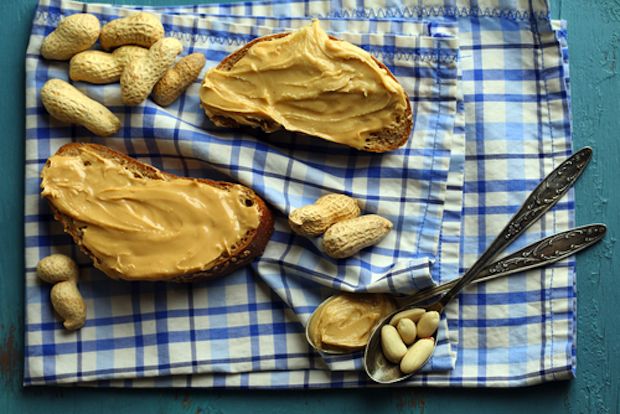Peanut allergies. Unless you live under a rock, you’ve heard about this. Causing everything from discomfort to death, peanut allergy was barely heard of 20 years ago, yet in America the number of kids who live with this deadly danger has more than quadrupled in the last eight years alone. What is going on here?
Well, it turns out that it may be a very big deal, but not in the ways we’re often led to expect: Is it possible the peanut allergy phenomenon might have more to do with parents, and the parenting advice they’re following, than the babies themselves? The new research indicates that if new moms and dads switched from the current common practices of avoiding peanuts and foods with traces of peanuts (even items prepared in places where peanuts are stored), to feeding their infants small amounts of peanut products from a young age, it’s possible we could all but rid the population of this allergy.
I believe that desire to protect our kids is a really important part of great parenting. It’s just that, like most good things, there really can be too much of it.
In other words, if we switched from the conventional wisdom – vigilantly protecting kids from peanuts because of the fear of what might happen – to carefully exposing kids to what’s already part of the word, there’s now evidence to believe that children could be healthier and more robust.
Don’t get me wrong, the allergy is real. In checking with two doctors who I turn to with such questions, a pediatric immunologist and a neonatologist (the former being my older brother), I learned that despite many attempts by researchers, there’s no good explanation for the rising rates of allergy to this one food. According to both, however, there’s plenty of reason to believe that as real as the allergy is for some kids, there’s some serious over-reporting of it by well-intentioned parents. The experts I discussed this with also see the new research as very promising – potentially, a way to help those kids who have a propensity to develop peanut allergy.
The new report also made me think that perhaps in some cases, a modified approach to parenting could be wiser all around. How many of us worry too much about how to protect our kids from most everything, instead of focusing on how to prepare them to deal with most anything?
Believe me, I get the protectionist impulse. Not only am I a parent, my kids are the only people about whom I really worry. Whatever anxieties I feel in life, almost all are parked in the area of my kids, their futures, etc. But the fact that I can identify with the desire to protect my children from potential danger, or even discomfort, doesn’t mean that it’s always the healthiest impulse or best parenting choice.
In fact, I wrestle with that impulse often. And I believe that desire to protect our kids is a really important part of great parenting. It’s just that, like most good things, there really can be too much of it. To me, the new study about peanut allergy reminds us of that.
There’s no bright line delineating the boundary between healthy and unhealthy protection – it will be different for every kid. It probably would be good, however, to consider this first as parents: How might we prepare our child to best deal with what life is likely to throw at her or him? (Instead of reflexively trying to protect both them and ourselves from even asking that question, by insulating them from any uncertainty.)
Sometimes a little exposure can go a long way toward healthier, happier lives for both parents and children – and I’m not only talking about peanuts.

Listed for many years in Newsweek as one of America’s “50 Most Influential Rabbis” and recognized as one of our nation’s leading “Preachers and Teachers,” by Beliefnet.com, Rabbi Brad Hirschfield serves as the President of Clal–The National Jewish Center for Learning and Leadership, a training institute, think tank, and resource center nurturing religious and intellectual pluralism within the Jewish community, and the wider world, preparing people to meet the biggest challenges we face in our increasingly polarized world.
An ordained Orthodox rabbi who studied for his PhD and taught at The Jewish Theological Seminary, he has also taught the University of Pennsylvania, where he directs an ongoing seminar, and American Jewish University. Rabbi Brad regularly teaches and consults for the US Army and United States Department of Defense, religious organizations — Jewish and Christian — including United Seminary (Methodist), Yeshivat Chovevei Torah (Modern Orthodox) Luther Seminary (Lutheran), and The Jewish Theological Seminary (Conservative) — civic organizations including No Labels, Odyssey Impact, and The Aspen Institute, numerous Jewish Federations, and a variety of communal and family foundations.
Hirschfield is the author and editor of numerous books, including You Don’t Have To Be Wrong For Me To Be Right: Finding Faith Without Fanaticism, writes a column for Religion News Service, and appears regularly on TV and radio in outlets ranging from The Washington Post to Fox News Channel. He is also the founder of the Stand and See Fellowship, which brings hundreds of Christian religious leaders to Israel, preparing them to address the increasing polarization around Middle East issues — and really all currently polarizing issues at home and abroad — with six words, “It’s more complicated than we know.”

